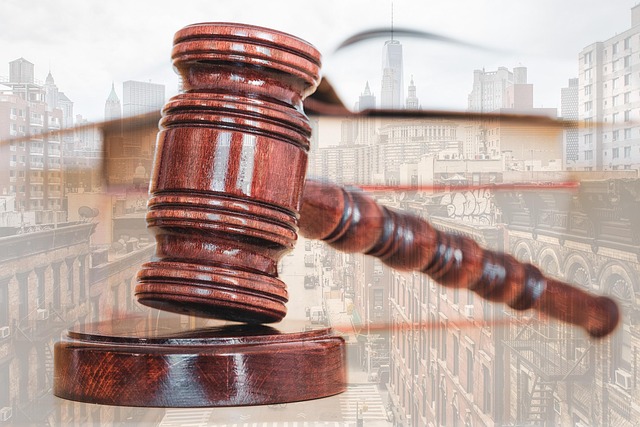The RF Securities Industry Regulation, enforced by FINRA and state divisions, safeguards financial markets through collaborative investigative and enforcement processes. Protecting intellectual property (IP) in this sector involves identifying diverse IP forms, implementing robust policies, and employee training. Filing an IP lawsuit against RF entities requires meticulous legal research and understanding jurisdiction-specific laws, with consulting specialized attorneys crucial for high-stakes cases. Effective post-filing strategies include researching precedents, developing strong arguments, monitoring objections, negotiating settlements, or preparing for trial to safeguard and maximize IP value.
The RF Securities Industry is a complex landscape, demanding robust regulation to protect investors and maintain fair markets. This article delves into the intricacies of this regulatory framework, highlighting key players and their roles in shaping the industry. We explore practical steps for identifying and safeguarding intellectual property (IP) within financial sectors, with a particular focus on steps to file an intellectual property lawsuit. Understanding legal requirements and post-filing strategies is crucial for effective IP enforcement, ensuring a robust defense against RF entities.
- Understanding RF Securities Industry Regulation: Key Players and Their Roles
- Steps to Identify and Protect Intellectual Property in the Financial Sector
- Navigating Legal Requirements: Filing an Intellectual Property Lawsuit Against RF Entities
- Post-Filing Strategies: Ensuring a Strong Case and Effective Enforcement of IP Rights
Understanding RF Securities Industry Regulation: Key Players and Their Roles

The RF Securities Industry Regulation is a complex web of rules and guidelines designed to ensure fairness, transparency, and integrity in the financial markets. At its heart lie key players who play pivotal roles in maintaining order. The Financial Industry Regulatory Authority (FINRA) stands as a prominent regulator, overseeing broker-dealers and ensuring they adhere to industry standards. Their white collar defense strategies are crucial in navigating the legal complexities of securities law violations. Additionally, state securities divisions, like those across the country, actively monitor market activities, investigating potential misconduct and enforcing regulations.
These regulatory bodies collaborate throughout all stages of the investigative and enforcement process, working together to identify, address, and penalize any wrongdoings. The Steps to File Intellectual Property Lawsuit are similarly intricate, requiring a thorough understanding of these regulatory frameworks. Effective compliance and adherence to these rules not only safeguard investors but also foster a robust and trustworthy financial ecosystem.
Steps to Identify and Protect Intellectual Property in the Financial Sector

Protecting intellectual property (IP) is paramount in the financial sector where ideas and innovations are highly valued. The first step towards safeguarding your IP involves identifying it. This includes trademarks, copyrights, patents, trade secrets, and other forms of intangible assets that contribute to a company’s competitive edge or provide unique value to its clients. Once identified, it’s crucial to document these properties thoroughly, ensuring all necessary registration papers are in order and stored securely.
For financial institutions serving both corporate and individual clients, establishing robust IP policies is essential. These policies should outline procedures for creating, using, and disclosing IP within the respective business. Regular training sessions for employees can help them understand their roles in maintaining IP integrity and the steps to take when facing potential IP infringement or misappropriation. Furthermore, staying informed about relevant laws and regulations, including knowing the steps to file an intellectual property lawsuit, is vital to ensuring a complete dismissal of all charges if necessary.
Navigating Legal Requirements: Filing an Intellectual Property Lawsuit Against RF Entities

Navigating Legal Requirements involves a meticulous process, especially when considering a Step to File Intellectual Property Lawsuit against RF Entities. The first step is to thoroughly research and understand the applicable laws and regulations regarding intellectual property (IP) rights in your jurisdiction. This includes copyrights, trademarks, patents, and trade secrets. Each type of IP has its own unique legal framework and filing procedures.
For high-stakes cases involving RF entities, it’s crucial to consult with experienced attorneys who specialize in both general criminal defense and IP law. They can guide you through the complexities, ensuring compliance with all legal requirements. This process may include preparing detailed applications, gathering compelling evidence, and presenting a strong case to support your intellectual property claims within the context of the RF entities’ activities.
Post-Filing Strategies: Ensuring a Strong Case and Effective Enforcement of IP Rights

Post-filing strategies are crucial for a robust intellectual property (IP) rights case management in the RF securities industry. Once a patent, trademark, or copyright is filed, the real work begins—ensuring a solid legal argument and protecting the client’s interests. This involves comprehensive research on previous cases, identifying relevant precedents, and developing a compelling strategy to defend or enforce IP rights. A meticulous approach is essential, especially in high-stakes cases, where achieving extraordinary results can significantly impact a corporation’s or individual’s bottom line.
The process includes monitoring the progress of the application, responding to any objections or rejections promptly, and engaging in proactive steps to maintain and strengthen the case. This may include negotiating licensing agreements, seeking settlements out of court, or preparing for trial by gathering evidence and expert opinions. Effective enforcement strategies not only protect the validity of the IP but also maximize its commercial value, ensuring long-term success for corporate and individual clients alike.
The regulation of the RF securities industry is a complex web involving key players like regulatory bodies, financial institutions, and legal experts. Understanding this landscape is crucial for protecting intellectual property (IP) in the financial sector. By following specific steps to identify and safeguard your IP, you can effectively navigate the legal requirements when considering a lawsuit against RF entities. A well-planned strategy post-filing is essential to enforce IP rights successfully, ensuring a robust case that reflects the intricate nature of the securities industry.






